Daily Vocabulary Words: List of Daily Used Words in Leading International Newspapers
Hi there. Welcome to this special section @ Wordpandit.
Our endeavour here is very simple: to highlight important daily vocabulary words, which you would come across in leading newspapers in the country. We have included the following newspapers in our selection:
• The New York Times
• The Washington Post
• Scientific American
• BBC
• The Guardian
• Psychology Today
• Wall Street Journal
• The Economist
We are putting in extensive work for developing your vocabulary. All you have got to do is be regular with this section and check out this post on a daily basis. This is your repository of words that are commonly used and essentially, we are posting a list of daily used words. Hence, this has significant practical application as it teaches you words that are used commonly in leading publications mentioned above.
Visit the website daily to learn words from leading international newspapers.
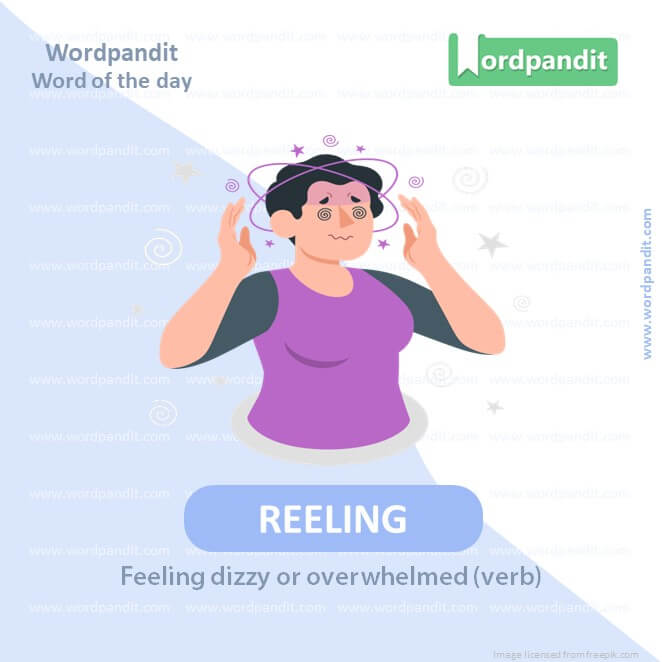
WORD-1: REELING
CONTEXT: Morocco is reeling in the aftermath of an earthquake that has killed more than 2,600 people. The survivors, who are being pulled from the dust and rubble, are in critical need of shelter, food and medical assistance.
SOURCE: Al Jazeera
EXPLANATORY PARAGRAPH: Imagine you’re spinning around really fast and then you stop. You might feel dizzy and like the world is spinning too, right? That feeling is a lot like “reeling.” People might also say they’re “reeling” when something surprises or shocks them.
MEANING: Feeling dizzy or overwhelmed (verb).
PRONUNCIATION: ree-ling
SYNONYMS: dizzy, staggered, wobbly, disoriented, lightheaded, unsteady, off-balance
USAGE EXAMPLE:
1. After spinning around, Jenny was reeling and had to sit down.
2. The news was so surprising that he felt like he was reeling.
3. The boxer was reeling after a powerful punch.
4. They were reeling from the unexpected loss.
WORD-2: DEBRIS
CONTEXT: When large-scale earthquakes strike, they often cause wide-scale damage to water networks, sewage systems and basic hygiene infrastructure. Mud and debris can bury critical infrastructure, paralysing entire water systems for months.
SOURCE: Al Jazeera
EXPLANATORY PARAGRAPH: “Debris” is like the little pieces of stuff you see after something breaks or when things get messy. Like the small parts of a toy after it’s broken, or leaves and twigs after a windy day.
MEANING: Scattered fragments or remains of something wrecked or destroyed (noun).
PRONUNCIATION: deh-bree
SYNONYMS: rubble, wreckage, remains, scraps, fragments, detritus
USAGE EXAMPLE:
1. After the storm, the beach was covered in debris.
2. The cleanup crew gathered the debris from the demolished building.
3. Children should stay away from the debris on the playground.
4. The car accident left a lot of debris on the road.
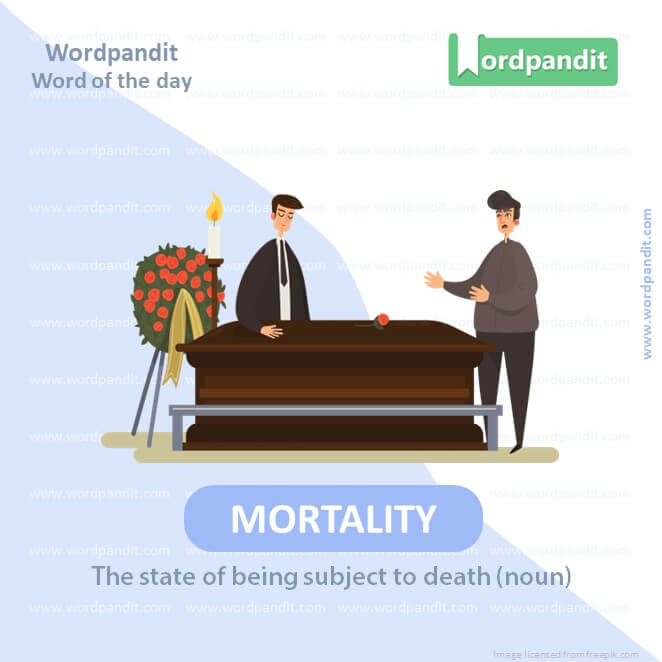
WORD-3: MORTALITY
CONTEXT: The lack of these services increases the number of infections and drives up maternal mortality rates. It also fuels waterborne diseases like cholera, typhoid and diarrhoea, which rip through communities and kill children under five at a rate 20 times higher than war.
SOURCE: Al Jazeera
EXPLANATORY PARAGRAPH: “Mortality” is a word that talks about life and death. When we say someone or something has “mortality,” it means they can’t live forever and will one day pass away.
MEANING: The state of being subject to death (noun).
PRONUNCIATION: mor-tal-ih-tee
SYNONYMS: impermanence, transience, ephemerality, perishability, vulnerability
USAGE EXAMPLE:
1. Humans, like all creatures, face the reality of mortality.
2. The doctor spoke about the mortality rate of the disease.
3. Many poets write about the theme of mortality.
4. As he aged, he pondered more about the nature of mortality.
WORD-4: WATERBORNE
CONTEXT: The lack of these services increases the number of infections and drives up maternal mortality rates. It also fuels waterborne diseases like cholera, typhoid and diarrhoea, which rip through communities and kill children under five at a rate 20 times higher than war.
SOURCE: Al Jazeera
EXPLANATORY PARAGRAPH: Think about things that can travel or move in water. “Waterborne” means something that is carried or spread by water. It can be both good and bad things.
MEANING: Carried or spread by water (adjective).
PRONUNCIATION: wa-ter-born
SYNONYMS: aquatic, marine, water-based, water-transported, hydrophilic
USAGE EXAMPLE:
1. The village suffered from a waterborne disease after the floods.
2. Waterborne paint is easier to clean than oil-based paint.
3. The scientist studied various waterborne particles in the river.
4. Traveling by boat, they were able to see several waterborne creatures.
WORD-5: DEJA VU
CONTEXT: As the former United Nations special rapporteur on the human rights to clean water and sanitation, this is a case of déjà vu for me. From Nepal to Haiti, and from Pakistan to Turkey and Syria, I’ve watched similar scenarios play out time and again.
SOURCE: Al Jazeera
EXPLANATORY PARAGRAPH: Have you ever felt like something has happened before even if it’s your first time experiencing it? That strange feeling is called “deja vu.”
MEANING: The feeling that one has experienced a current situation before (noun).
PRONUNCIATION: day-zhaa voo
SYNONYMS: familiarity, reminiscence, recollection, memory illusion, remembered perception
USAGE EXAMPLE:
1. When she entered the room, she had a strong sense of deja vu.
2. The movie scene gave him deja vu of a past event in his life.
3. “Have we met before?” “No, it’s just a case of deja vu.”
4. The melody of the song gave her deja vu.
WORD-6: GRIME
CONTEXT: In many of these crises, reports have emerged of earthquake survivors covered in grime, unable to shower and disinfect wounds. Toilets, when they exist, are often scarce in overcrowded emergency shelters. Without access to sanitation facilities, people have no other choice but to defecate outside.
SOURCE: Al Jazeera
EXPLANATORY PARAGRAPH: “Grime” is like the dirt or muck that can stick to things. When your toys or hands get really dirty, they have grime on them, and they need to be cleaned.
MEANING: Dirt, soot, or other filthy matter, especially adhering to or embedded in a surface (noun).
PRONUNCIATION: grim
SYNONYMS: filth, muck, dirt, smut, soot
USAGE EXAMPLES:
1. The window was covered in grime and needed a good cleaning.
2. His hands were full of grime after working in the garden.
3. The old book had a layer of grime from years of neglect.
4. She used a special solution to remove the kitchen grime.
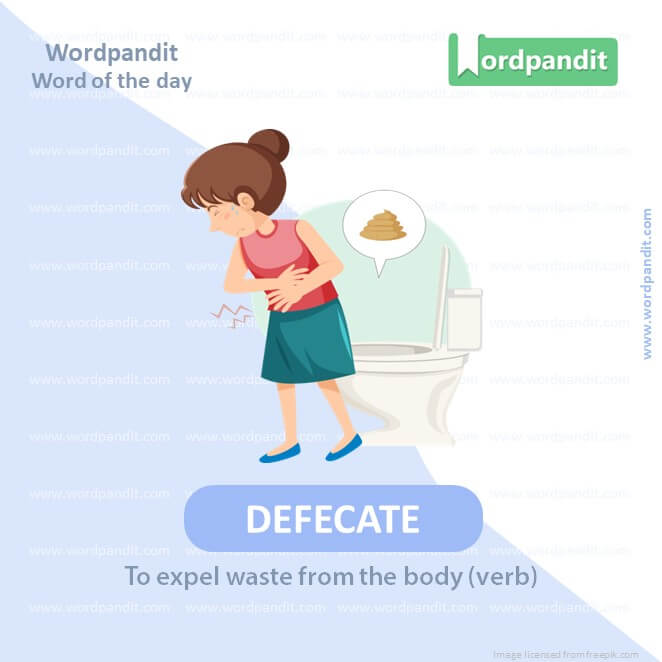
WORD-7: DEFECATE
CONTEXT: In many of these crises, reports have emerged of earthquake survivors covered in grime, unable to shower and disinfect wounds. Toilets, when they exist, are often scarce in overcrowded emergency shelters. Without access to sanitation facilities, people have no other choice but to defecate outside.
SOURCE: Al Jazeera
EXPLANATORY PARAGRAPH: You know when you go to the bathroom to do a “number two”? That’s called “defecate.” It’s just a fancy word for that!
MEANING: To expel waste from the body (verb).
PRONUNCIATION: def-ih-kate
SYNONYMS: evacuate, excrete, void, relieve oneself, pass waste
USAGE EXAMPLES:
1. The baby needed to defecate after her meal.
2. It’s essential for animals to defecate regularly for good health.
3. During our camping trip, we learned the proper way to defecate in the wild.
4. The doctor asked about the patient’s defecate routine.
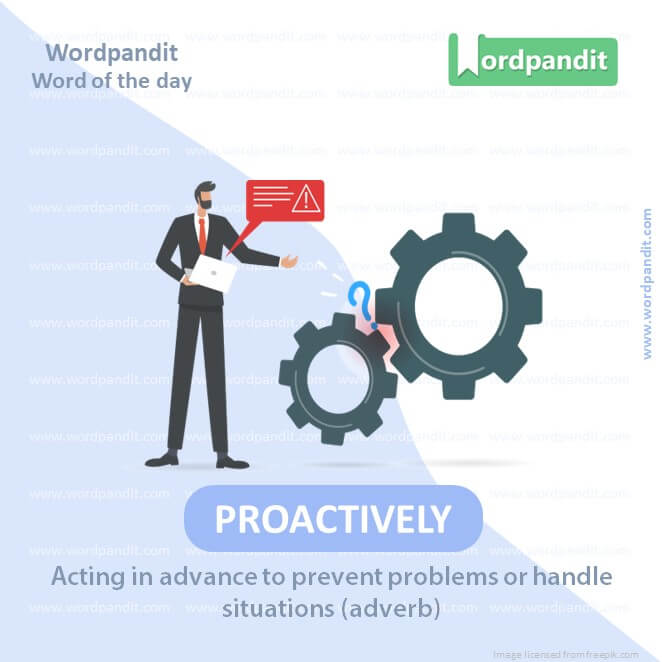
WORD-8: PROACTIVELY
CONTEXT: The UN High-level Experts and Leaders Panel on Water and Disasters has developed financing strategies to help governments proactively replace aging infrastructure.
SOURCE: Al Jazeera
EXPLANATORY PARAGRAPH: Imagine doing something before you’re even told, like cleaning your room before your parents ask. When you act like this, you’re being “proactive,” and when you do something in that way, you’re doing it “proactively.”
MEANING: Acting in advance to prevent problems or handle situations (adverb).
PRONUNCIATION: pro-act-iv-lee
SYNONYMS: preemptively, anticipatorily, ahead of time, in advance, foresightedly
USAGE EXAMPLES:
1. She proactively prepared for the meeting weeks in advance.
2. The community proactively planted trees to combat deforestation.
3. To avoid future problems, it’s essential to act proactively.
4. He proactively scheduled all his appointments for the month.
WORD-9: ENTRENCHED
CONTEXT: The Israeli-Palestinian peace agreement, reached in Oslo and signed in Washington, DC in 1993, aimed to achieve peace within five years. However, after failing and resurging several times, the process ultimately led to a more violent occupation and culminated in a more entrenched system of apartheid.
SOURCE: Al Jazeera
EXPLANATORY PARAGRAPH: Imagine a tree with its roots deep in the ground, and it’s tough to move or change. “Entrenched” is like that. It’s when a belief, habit, or idea is so deep and strong that it’s hard to change or remove.
MEANING: Firmly established and hard to change (adjective).
PRONUNCIATION: en-trench-t
SYNONYMS: ingrained, established, deep-seated, fixed, embedded
USAGE EXAMPLES:
1. The company had entrenched ways of doing things.
2. Some old beliefs remain entrenched in certain cultures.
3. She had an entrenched habit of reading before bedtime.
4. It’s challenging to change entrenched systems.
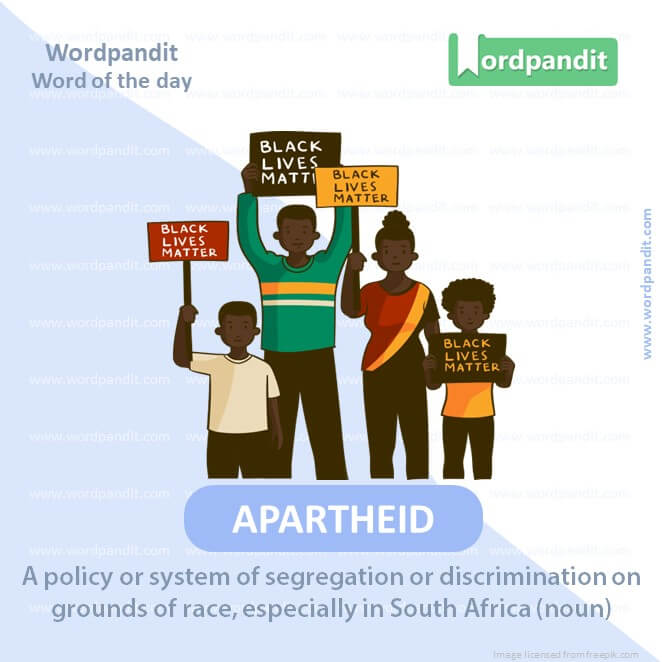
WORD-10: APARTHEID
CONTEXT: The Israeli-Palestinian peace agreement, reached in Oslo and signed in Washington, DC in 1993, aimed to achieve peace within five years. However, after failing and resurging several times, the process ultimately led to a more violent occupation and culminated in a more entrenched system of apartheid.
SOURCE: Al Jazeera
EXPLANATORY PARAGRAPH: “Apartheid” was a time in South Africa when people were separated and treated differently based on their skin color. It was very unfair, and many people worked hard to end it.
MEANING: A policy or system of segregation or discrimination on grounds of race, especially in South Africa (noun).
PRONUNCIATION: uh-part-hyt
SYNONYMS: segregation, discrimination, racial separation, racism, prejudice
USAGE EXAMPLES:
1. Nelson Mandela fought against apartheid in South Africa.
2. Many books have been written about the struggles during the apartheid era.
3. Students learn about apartheid in their history classes.
4. The museum had an exhibit dedicated to the victims of apartheid.







